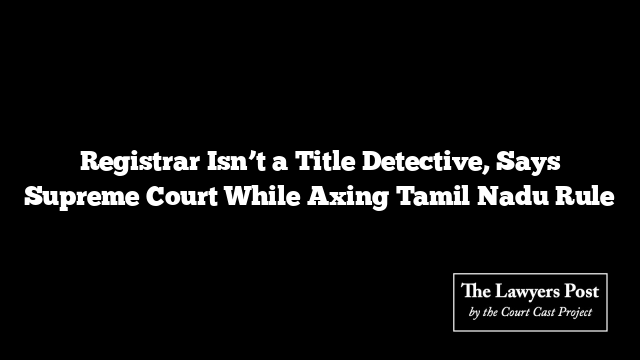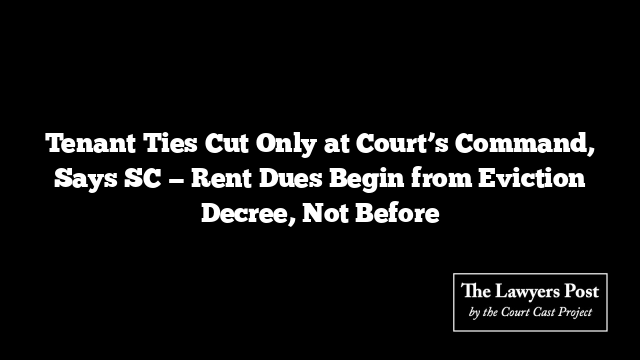In a sharp rebuke to regulatory déjà vu, the Supreme Court has drawn a firm line in the sand: once SEBI has ruled on a matter, it doesn’t get to circle back for a second bite at the apple. The country’s top court has ruled that the market regulator cannot pass multiple final orders based on the same cause of action, invoking the age-old but still razor-sharp principle of res judicata—you’ve had your say, now sit down.
This verdict came as the Court upheld a decision by the Securities Appellate Tribunal (SAT), which had thrown out SEBI’s 2018 disgorgement order against Vital Communications Ltd (VCL). Why? Because back in 2014, SEBI had already addressed the same issue—minus the disgorgement. That order wasn’t appealed. It stood. And as the Court made clear: if you could’ve done it then, you don’t get a mulligan later.
The bench, composed of Justices Sanjay Kumar and K.V. Viswanathan, zeroed in on the notion of constructive res judicata—the legal equivalent of “use it or lose it.” SEBI had its chance to demand VCL return the ill-gotten gains tied to inflated stock prices and misled investors. It didn’t. So when it tried to reboot the case four years later, the Court wasn’t having it.
Vital Communications had lured investors with flashy advertisements, but behind the glitter was a hollow shell of inflated valuations. SEBI, after conducting an investigation, passed an order in 2014 under Sections 11 and 11B of the SEBI Act. Penalties were imposed, but notably, no demand was made for disgorgement—the legal mechanism that forces someone to cough up illicit profits. Years later, under pressure from investor complaints, SEBI reopened the case and dropped a new disgorgement order. VCL pushed back. The Tribunal agreed. And now, so has the Supreme Court.
The Court cited several precedents, including the 1999 Hope Plantations ruling and the 1964 Amalgamated Coalfields decision, reiterating that once a decision becomes final, it is binding—even if it was flawed. Parties can’t drag each other through the mud again over matters they already had the chance to raise. SEBI’s re-litigation was, in the Court’s view, legally unsound and procedurally indefensible.
The judgment was blunt: “SEBI cannot pass multiple final orders on the same cause of action.” Once it had issued its 2014 order and left disgorgement off the table, it lost the right to revisit that omission four years later. The Court noted that the 2014 order had been executed and finalized. No appeals. No ambiguity.
The Supreme Court concluded: “Viewed thus, we are of the opinion that the entire exercise undertaken by SEBI after the passing of the final order dated 31.07.2014, resulting in the disgorgement order dated 28.09.2018, was unsustainable in law.”
With that, the appeal was dismissed. Final means final. And SEBI, the Court made clear, must live with its choices—just like the rest of us.





